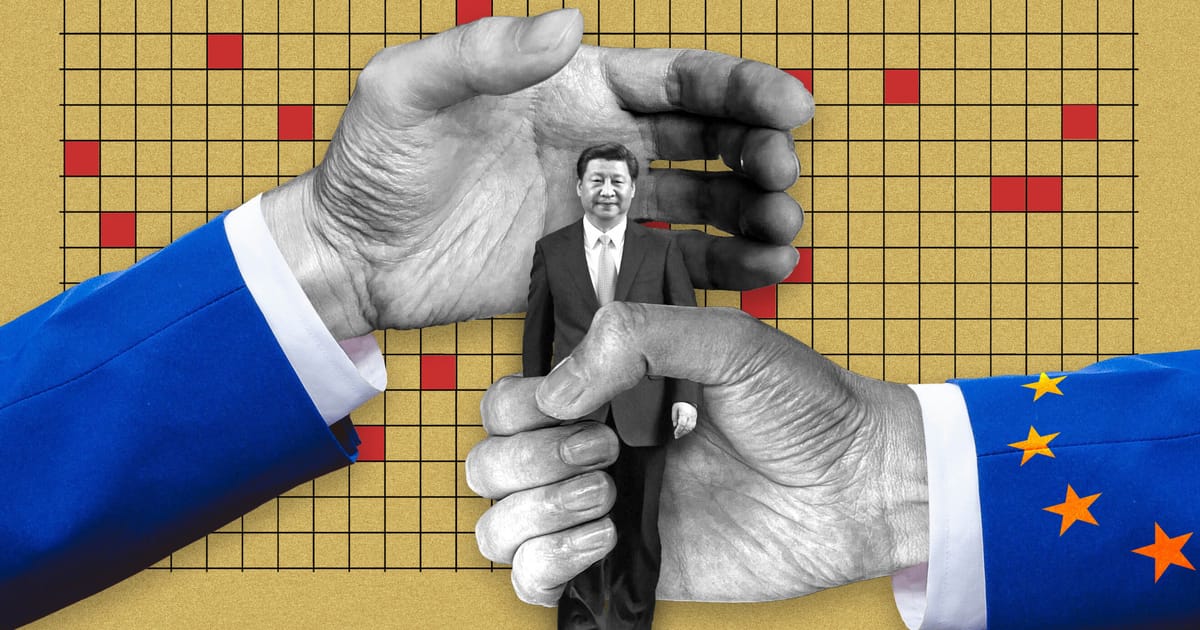Europe’s phoney war with China is at an end. After years of building up an improved arsenal for a trade war, Europe is now showing it is willing to get tough on Beijing.
On Tuesday, EU investigators swooped on the Dutch and Polish offices of Nuctech, a maker of security scanners, in a case that hinges on one of Europe’s longest running grievances with China — lavish state subsidies that help Chinese firms undercut European rivals.
Nuctech was once run by Hu Haifeng, son of President Xi Jinping’s predecessor, Hu Jintao, and China’s reaction was predictably seething. The raid “highlights the further deterioration of the EU’s business environment and sends an extremely negative signal to all foreign companies,” China’s mission to the EU fumed.
The timing of such an inflammatory raid seems significant, ahead of a trip to Europe by Xi next month — his first in five years, taking him to France, Serbia and Hungary — marking a definitive shift in the way that Europe is prepared to tackle its trade problems with China.



So does the US, though? Tesla has received an absurd amount of government support. So has Intel. This is targeted at China specifically, it’s not some economic leveling scheme.
There’s still a huge difference, because most of the subsidies in “western” countries are Tax Subsidies (there are exceptions). Chinese companies get direct money. There’s also the fact, that management is often in the CCP, sometimes even directly involved in the law making and various other things. Almost all subsidies are also in government loans, meaning they have to be payed back - the difference to bank loans though is that the government loans do not have interest. Again something that isn’t happening in China…as the CCP mostly owns those companies as well, they do not have to pay back the money.
Compare the subsidies received by Tesla and BYD. Cite your sources to back up your claims.
Yes, because the CCP are renowned for sharing information and transparency.
Fine, then just tell me about what subsidies Tesla has received. I’ll wait.
It is estimated that China’s subsidies for its domestic industries are extraordinarily high, ranging from 3-9 times compared to that of other OECD countries. BYD in particular is estimated to have received 2.1 billion EUR in 2022 in direct subsidies alone. This figure is understood to be understated due to additional indirect assistance such as cheaper access to batteries etc.
For comparison, Tesla is estimated to have received around 2.8 billion USD in combined state, local and federal subsidies, with an additional 460 million USD in the form of bailouts and loan assistance, in total to date.
China’s Massive Subsidies for Green Technologies | Kiel Institute - https://www.ifw-kiel.de/publications/news/chinas-massive-subsidies-for-green-technologies/
Subsidy Tracker - https://subsidytracker.goodjobsfirst.org/parent/tesla-inc
Elon Musk’s growing empire is fueled by $4.9 billion in government subsidies
Story from 2015. If you include the tax rebate incentives (which are included in BYD’s reporting, but which function differently in China because China lacks direct income tax for most people due to accounting costs… It’s an open secret that the Chinese government doesn’t care about personal tax income much), Tesla’s numbers skyrocket:
Tesla to get US$41 billion in government subsidies over made-in-US EVs and batteries
Tesla has received more than $3.2 billion worth of direct and indirect California subsidies and market mechanisms since 2009, according to an estimate from Newsom’s office.
If you want to argue that the $7500 EV purchase incentive is not a direct subsidy because it has no specific cash value (since it’s dependent on the person’s tax burden)… Be my guest, but that’s a laughable position.
Found the tankie
If the World Bank and the IMF find the data released by China credible, why can’t you?